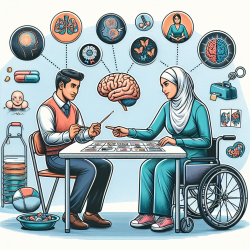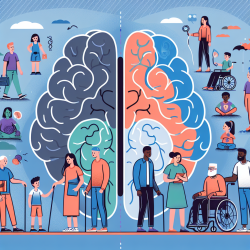The COVID-19 pandemic has undeniably reshaped many facets of our lives, including how mental health services are delivered. One pivotal study, titled Acceptance of E-mental health interventions and its determinants among psychotherapists-in-training during the first phase of COVID-19, offers valuable insights into the acceptance of E-mental health (EMH) among psychotherapists-in-training.
Understanding and embracing these findings can significantly improve how practitioners approach EMH, thus enhancing their skills and ensuring better mental health outcomes for their clients. Let's dive into the key takeaways from this study and how you can apply them to your practice.
Key Findings from the Study
The study surveyed 216 psychotherapists-in-training from Germany and Switzerland during the summer of 2020. The primary goal was to assess the acceptance of various EMH modalities and identify factors that influence this acceptance. Here are the standout points:
- Moderate Acceptance: The overall acceptance of EMH was moderate (M = 3.40, SD = 1.11) but showed a significant increase from pre-COVID-19 times (M = 2.67, SD = 1.11).
- Varied Acceptance by Modality: Videoconferencing was the most accepted modality, while unguided programs were the least accepted.
- Determinants of Acceptance: Performance expectancy, social influence, and concerns about the therapeutic alliance were significant determinants of EMH acceptance.
How to Apply These Findings
As a practitioner, understanding these determinants can help you enhance your EMH offerings and improve your clients' experiences. Here are some practical steps:
1. Focus on Performance Expectancy
Ensure that you and your clients believe in the effectiveness of EMH. Highlight the benefits and successes of EMH in your practice, using evidence-based examples to build confidence.
2. Leverage Social Influence
Encourage a supportive environment where peers and mentors endorse EMH. Share positive experiences and success stories within your professional network to normalize and promote the use of EMH.
3. Address Concerns About the Therapeutic Alliance
Many practitioners worry that EMH might weaken the therapeutic relationship. Invest time in training to build skills specific to online therapy, ensuring that you can maintain strong connections with your clients even in a virtual setting.
Encouraging Further Research
The study underscores the importance of continued research into EMH acceptance and its determinants. As practitioners, staying informed about the latest findings can help us adapt and improve our services. Consider engaging in or supporting research initiatives to further explore this field.
For a deeper dive into the study and its comprehensive findings, Acceptance of E-mental health interventions and its determinants among psychotherapists-in-training during the first phase of COVID-19.










